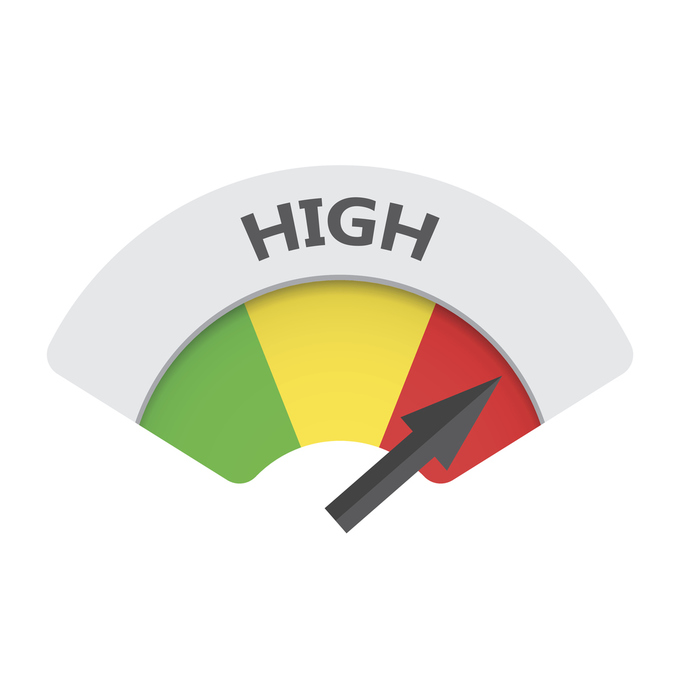No matter how long I’ve been using credit cards, I always get a little excited when an issuer bumps up my credit limit. My credit utilization goes down, my credit score goes up, and I have an even larger safety net if I had some big, unexpected expense come up. But it does make me wonder if there such thing as a too-high credit limit. Can too much available credit actually be a bad thing?
Let’s take a look at why an increase in your credit limit is great… and why you might not want it to go any higher.
Beyond the sheer satisfaction that comes from a high credit limit (even if you never plan to use it), there are a few other perks. And luckily, your credit score is at the center of them.
The higher your credit limits are, both as a whole and on individual cards, the better your credit utilization will be. Even if you pay off a credit card in full each billing cycle, your issuer will still report the statement balance to the credit bureaus. This means that if you spend $1,500 a month on a $2,000 limit card, your utilization will show up as 75% -- which is well beyond the 30% maximum that’s recommended.
Whether you pay off that balance days later or not, it doesn’t matter. The bureaus will only see the 75% utilization that’s reported at the end of the statement cycle, and it will serious impact your score. In fact, your credit utilization accounts for 30% of your total FICO credit score, so keeping this number low is important.
When you increase your credit limit, you automatically decrease that utilization. The same $1,500 monthly spend – which accounted for 75% of your previous $2,000 limit – would only utilize 30% of your credit if you had a $5,000 limit.
While a credit card isn’t a very wise choice for an emergency fund, it is still good to have on-hand if unexpected expenses arise. By utilizing a higher limit credit card, you can no only earn rewards on your emergency spending, but also protect purchases with card benefits and even utilize 0% APR offers in the process.
You still don’t want to spend more than you can afford, and it’s still important to have a cash emergency fund saved up. However, a credit card with a high limit makes for an added safety net.
The biggest reason that a raised credit limit is a bad idea is that, for some people, it can make the temptation to spend even greater. If you have had trouble with credit card debt in the past or already find it difficult to stay within budget, a few more thousand in available credit could be enough to tip your spending over the edge.
This is where you’ll need to take an honest look at your habits, your personality, and your current financial situation. For instance, if the only thing keeping you from a shopping spree, tropical vacation, or new entertainment center is that you’re too close to your credit limit, decline your lender’s offer for a limit increase.
You’ll thank yourself in the end, I promise.
It might be great to see your credit limit steadily creep upward, even if you never have any intention of spending that money. But if you’re looking at a home loan, mortgage refinance, or other large bank-based loan, your sky-high credit limits could actually work against you.
You may never touch your tens of thousands in available credit. However, banks don’t know that you won’t one day max out your card(s); all they know is that the money is ready and available to you. This is especially true if your total available credit is anywhere near (or beyond!) your annual income. If you could technically charge more on credit than you make in a year, you’re actually considered a risk to most banks… no matter your credit history.
If you have considerably more available credit than you need, and plan to apply for any number of bank loan products, consider asking your issuers to lower your credit limits. This removes any risk of charging more than you could literally afford, and makes you appear less risky to lenders.
Raising credit limits can be a great thing, especially if trying to decrease your credit utilization and increase your credit score. However, just be sure that you won’t give into the temptation of that new available credit. And if you’re planning to buy a home anytime soon (or apply for a similar loan), having too much available credit could actually come back to bite you.

